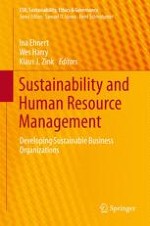2014 | OriginalPaper | Buchkapitel
Sustainability and HRM in International Supply Chains
verfasst von : Christine Hobelsberger
Erschienen in: Sustainability and Human Resource Management
Verlag: Springer Berlin Heidelberg
Aktivieren Sie unsere intelligente Suche, um passende Fachinhalte oder Patente zu finden.
Wählen Sie Textabschnitte aus um mit Künstlicher Intelligenz passenden Patente zu finden. powered by
Markieren Sie Textabschnitte, um KI-gestützt weitere passende Inhalte zu finden. powered by
